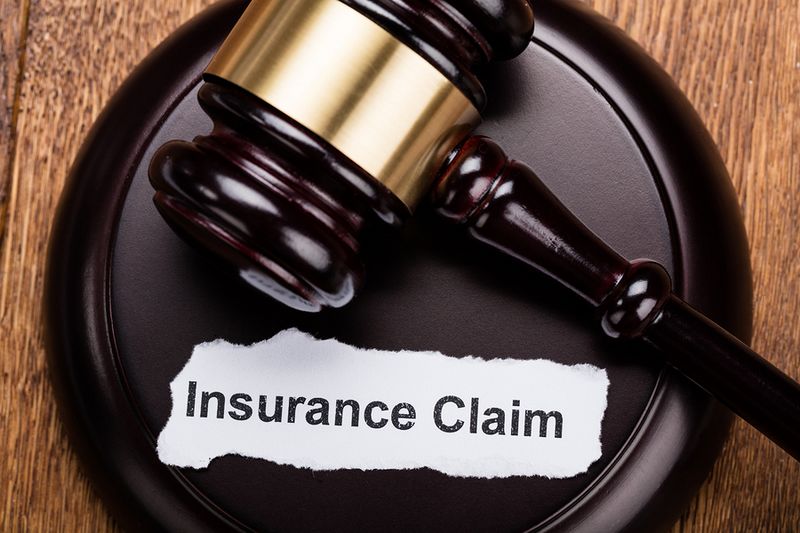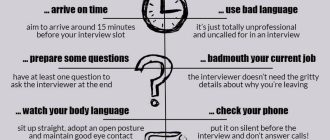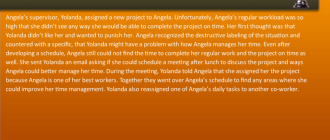
Why Your Insurance Adjuster Might Not Call You Back and What to Do.
When you file an insurance claim, one of the first things you expect is for your insurance adjuster to call you back. However, there are times when your adjuster might not call you back, leaving you wondering what went wrong. It can be frustrating and confusing, but it’s important not to panic. There are several reasons why your adjuster might not be reaching out to you, and steps you can take to ensure that you get the attention and assistance you need.
One possible reason is that your adjuster might be dealing with a high volume of claims. Insurance adjusters often have a heavy workload and can get overwhelmed with the number of claims they need to handle. In such cases, it’s not personal – they simply might not have had the chance to get to your claim yet. It’s important to be patient and give them some time before assuming that they are not going to call you back.
Another reason could be that there is missing or incomplete information on your claim. Insurance adjusters rely on accurate and detailed information to process claims efficiently. If there are any missing documents or information, your adjuster might not be able to proceed with your claim until they receive all the necessary materials. Make sure to double-check that you have provided all the required documents and information to avoid any delays.
How to Deal with a Non-responsive Insurance Adjuster
If your insurance adjuster is not calling you back, it can be frustrating and concerning. However, there are steps you can take to try and resolve the situation:
- 1. Be proactive – reach out to your insurance adjuster and express your concerns about their lack of communication. Request a call or email with an update on your claim.
- 2. Keep a record – document all attempts to contact the adjuster and the dates and times of your interactions. This can be useful if you need to escalate the issue later on.
- 3. Contact the supervisor – if your adjuster continues to be unresponsive, consider reaching out to their supervisor or manager. Explain the situation and express your dissatisfaction with the lack of communication.
- 4. Involve your agent – if you have an insurance agent, inform them about the situation and ask for their assistance in getting a response from the adjuster.
- 5. Utilize alternative communication methods – if the adjuster is not responding to phone calls, try reaching out via email or through the insurance company’s online portal, if available.
- 6. Seek legal advice – if all else fails and you believe your claim is being unjustly ignored, it may be wise to consult with an attorney who specializes in insurance matters.
Dealing with a non-responsive insurance adjuster can be frustrating, but by taking these steps, you can increase the likelihood of getting the communication and assistance you need.
Reasons Why an Insurance Adjuster Might Avoid Contacting You
An insurance adjuster plays a crucial role in the claims process, as they assess the damage and determine what the insurance company will cover. However, there are instances when an adjuster might not reach out to you in a timely manner. Here are some reasons why:
1. Overwhelming workload: Insurance adjusters often handle multiple cases simultaneously, which can result in delays in contacting policyholders. Due to their extensive workload, they may not have enough time to reach out to every customer immediately.
2. Difficulties in reaching you: If you provided incorrect contact information, changed phone numbers or email addresses, or have limited availability, it can be hard for the adjuster to get in touch with you. Ensure that you provide accurate and up-to-date contact details to avoid any communication issues.
3. Technical difficulties: Sometimes, adjusters face technical difficulties that prevent them from contacting you. It could be due to system glitches, internet outages, or other unforeseen circumstances. These technical issues can further delay their communication with you.
4. Investigations: Adjusters need to thoroughly investigate the claim to determine its validity. This process can take time, especially if there is limited evidence or conflicting information. They might delay contacting you until they gather all the necessary information to make an informed decision.
5. Prioritization: Insurance adjusters prioritize their workload based on various factors such as severity of damage, complexity of the claim, and the policyholder’s level of cooperation. If your claim is deemed less urgent or complex, it might take longer for the adjuster to contact you.
What should you do if the adjuster does not call you back?
If you have been waiting for the adjuster to reach out to you, and they haven’t done so, there are a few proactive steps you can take:
– Review your contact information and ensure it is accurate
– Reach out to the insurance company’s customer service to inquire about the status of your claim
– Document all your attempts to contact the adjuster and any responses you receive
– Consider seeking legal advice if the lack of communication becomes a significant issue
Remember that patience and understanding are crucial when dealing with insurance adjusters. While delays in communication can be frustrating, there are often valid reasons for them. By following the suggested steps and maintaining clear and timely communication, you can help facilitate the claims process.
Understanding the Role of an Insurance Adjuster
When you file an insurance claim, you may not always be in direct contact with your insurance adjuster. This can be frustrating, but it’s important to understand the role of an insurance adjuster and why they might not call you back immediately.
An insurance adjuster is a trained professional who evaluates and investigates insurance claims. They work for insurance companies and are responsible for determining the coverage and compensation you are entitled to after an incident or accident.
Insurance adjusters have a lot of responsibilities and tasks to handle, including reviewing policies, interviewing witnesses, inspecting property damage, and negotiating settlements. They are often dealing with multiple claims at the same time, which can lead to delays in communication.
If your insurance adjuster is not calling you back, it does not necessarily mean they are ignoring you. It is likely that they are simply busy handling other claims or conducting investigations. However, it is important to persist and follow up with them to ensure that your claim is being processed.
Here’s what you can do if your insurance adjuster is not calling you back:
- Be patient: Understand that your adjuster may be dealing with a high volume of claims and may need more time to respond.
- Follow up: If you haven’t heard from your adjuster within a reasonable time frame, don’t hesitate to follow up with them. Send a polite email or leave a voicemail asking for an update on your claim.
- Contact their supervisor: If your adjuster continues to be unresponsive, consider reaching out to their supervisor. Explain the situation and ask for assistance in getting the communication back on track.
- Document everything: Keep detailed records of all communication with your adjuster, including dates, times, and the content of conversations or emails. This will be useful if you need to escalate the issue or file a complaint.
- Seek assistance: If you’re still having trouble getting a response, you may want to consider seeking assistance from a consumer advocacy group or even consulting with an attorney who specializes in insurance claims.
Remember, insurance adjusters are there to help you. By understanding their role and being proactive in following up, you can ensure a smoother claims process and a timely resolution to your insurance claim.
Steps to Take if Your Insurance Adjuster Doesn’t Return Your Calls
If your insurance adjuster doesn’t call you back, it can be frustrating and concerning, but there are steps you can take to ensure your claim is still being processed.
1. Document your attempts: Keep a record of every time you called and left a message for your adjuster. Note down the dates and times of your calls, as well as any other attempts you made to reach out, such as emails or faxes.
2. Follow up in writing: If you haven’t received a response after several attempts, write a formal letter to your adjuster. Include all relevant details regarding your claim and any previous attempts to contact them. Send the letter via certified mail to ensure it is delivered and keep a copy for your records.
3. Contact their supervisor: If you still don’t hear back from your adjuster, reach out to their supervisor or manager. Explain the situation and provide all the necessary information. They should be able to assist you or assign a new adjuster to your claim.
4. Document everything: Throughout this process, make sure to document all interactions, whether through phone calls, emails, or letters. Keep a log of who you spoke with, their title, and the content of the conversation. This documentation will be valuable if you need to escalate your concerns further.
5. Contact your insurance company: If all else fails, contact your insurance company directly and explain the situation. They have a vested interest in ensuring their adjusters are responsive and providing good service. They may be able to expedite your claim or offer alternative solutions.
Remember, it’s important to stay persistent and advocate for yourself if your insurance adjuster isn’t returning your calls. Following these steps can help ensure that your claim is properly handled and resolved in a timely manner.
Common Misconceptions About Insurance Adjusters
When filing an insurance claim, it can be frustrating if your adjuster does not call you back promptly. However, it is important to understand that there are many reasons why an adjuster may not be able to get back to you immediately.
One common misconception is that the adjuster is purposely ignoring your calls or emails. This is usually not the case. Insurance adjusters often have a heavy workload and may be handling multiple claims at once. They have to assess the damages, review policy details, and negotiate with other parties involved. So, it is not a matter of them choosing not to get back to you, but rather a matter of them prioritizing their tasks.
Another misconception is that the adjuster is trying to delay your claim. While it may be frustrating to wait for a response, most adjusters have strict deadlines and are motivated to resolve claims as efficiently as possible. The delay may be due to factors beyond their control, such as waiting for necessary documentation or input from other departments.
It is also important to understand that the adjuster’s job is to represent the insurance company’s interests. They are not there to solely advocate for you. Their goal is to assess the damages and determine the appropriate amount of compensation based on the terms of your insurance policy. This may involve negotiations with other parties, which can take time.
So, what can you do? It is important to be patient and understanding during the claims process. If you have not heard back from your adjuster, you can follow up with a polite email or phone call to inquire about the status of your claim. It is also helpful to keep all communication and documentation related to your claim organized and easily accessible.
Remember, the insurance adjuster is there to help you, but they have a complex job with many responsibilities. By understanding their role and the challenges they face, you can have realistic expectations and work together towards a fair resolution of your claim.
The Importance of Communication in Insurance Claims
Communication is an essential aspect of the insurance claims process, especially when it comes to interacting with your insurance adjuster. While it can be frustrating when your adjuster does not call you back, it is important to understand why this might happen and what you can do to improve the situation.
Insurance adjusters are often busy individuals who handle multiple claims at once. They might be dealing with a high workload or facing time constraints, which can make it difficult for them to promptly return calls. However, this does not mean that they are ignoring you or that your claim is getting neglected. It simply means that they are prioritizing their tasks based on urgency.
To ensure effective communication with your adjuster, follow these steps:
- Be patient: Understand that your adjuster might be busy and give them a reasonable amount of time to respond.
- Leave clear and concise messages: When leaving a voicemail or sending an email, make sure to provide all the necessary information and state the purpose of your communication in a brief and organized manner.
- Follow up: If you haven’t received a response within a reasonable timeframe, feel free to follow up with a polite reminder.
- Consider alternative methods of communication: If you are having trouble reaching your adjuster by phone, try sending an email or contacting them through their preferred method of communication.
By maintaining open lines of communication with your insurance adjuster, you can ensure that your claim progresses smoothly. Remember that effective communication is a two-way street, so it is equally important for you to be responsive and cooperative throughout the claims process.
Tips for Effective Communication with Your Insurance Adjuster
When dealing with insurance claims, effective communication with your insurance adjuster is essential. However, there are times when your adjuster might not call you back. Here are some tips to help improve your communication with your insurance adjuster:
| 1. | Be proactive |
| 2. | Document everything |
| 3. | Ask for a timeline |
| 4. | Follow up regularly |
| 5. | Stay calm and polite |
| 6. | Escalate if necessary |

By following these tips, you can improve your communication with your insurance adjuster and ensure a smoother claims process.
How to Document Your Communications with the Insurance Adjuster
When dealing with an insurance claim, it is important to establish clear and effective communication with the insurance adjuster. However, there are times when the adjuster might not call you back. In such cases, it is crucial to document every interaction and communication you have had with the adjuster. This can help ensure that you have a record of the conversations and progress made towards resolving your claim.
Here are some steps to take in order to properly document your communications with the insurance adjuster:
| 1 | Keep a log |
| 2 | Record the date and time |
| 3 | Take detailed notes |
| 4 | Use email or written communication |
| 5 | Keep copies of all documents |
Firstly, it is essential to keep a log of all your communications with the insurance adjuster. This can be a simple document where you note down all relevant information about each interaction. This log will serve as a reference and help you stay organized throughout the claims process.
Secondly, make sure to record the date and time of each communication. This will help create a timeline of events and ensure accuracy in your records.
When speaking with the adjuster, take detailed notes about what was discussed. Include important details such as the adjuster’s name, contact information, and any promises or agreements made during the conversation. This will provide you with a clear record of what was said and help prevent misunderstandings in the future.
Whenever possible, try to communicate with the insurance adjuster through email or written communication. This ensures that you have a written record of the conversation, which can be important if any disputes or conflicts arise later on. If you do have a phone conversation, consider following up with an email summarizing the discussion to create a written record.
Lastly, it is crucial to keep copies of all documents related to your claim. This includes emails, letters, invoices, receipts, or any other written communication you have exchanged with the adjuster. Having copies of these documents can help support your case and provide evidence if needed.
In conclusion, documenting your communications with the insurance adjuster is necessary to keep track of the progress and ensure transparency throughout the claims process. By following these steps and keeping a record of your interactions, you can protect yourself and ensure that your interests are being represented accurately.
The Impact of Delays in Claims Processing
When you file an insurance claim, it is natural to expect a prompt response from your insurance adjuster. However, there are several reasons why your adjuster might not call you back right away.
Firstly, your adjuster might not call you back if they are swamped with other claims. Insurance companies often receive a high volume of claims, especially during peak seasons or after a major event like a natural disaster. In these cases, adjusters have to prioritize their workload and may not be able to promptly respond to every claim.
Another reason why your adjuster might not call you back is if they need to gather more information or documentation. Adjusters have a responsibility to thoroughly investigate each claim, which may require additional time to review documents, interview witnesses, or consult with experts. It is important to provide all the necessary information promptly to expedite the claims process.
Additionally, your adjuster might not call you back if they are waiting for approval from their superiors or need to consult with other departments. Insurance companies often have a hierarchical structure and complex processes in place for claims handling. If a decision regarding your claim needs to be made by someone higher up in the company, it may cause delays in communication.
Delays in claims processing can have a significant impact on policyholders. They can prolong the waiting time for a settlement, leading to financial hardships for those who rely on insurance for repairs or medical expenses. Delays can also cause frustration and stress for policyholders, who might feel ignored or neglected by their insurance company.
What can you do if your adjuster is not calling you back? First and foremost, it is essential to stay patient and understanding. Remember that your adjuster is likely handling multiple claims and may be doing their best to process them all in a timely manner. If you haven’t heard back within a reasonable amount of time, try reaching out again, either by phone or email.
When contacting your adjuster, be polite and professional. Clearly state your name, policy number, and the reason for your call. Ask if there is any additional information or documentation you can provide to expedite the process. If you are still not receiving a response, consider escalating your concern to a supervisor or filing a complaint with the insurance company.
In conclusion, delays in claims processing can occur for various reasons, including a high volume of claims, the need for additional information, or internal processes within the insurance company. It is important to be patient and proactive in following up with your adjuster to ensure a smooth claims process.
How to Escalate Your Claim if the Adjuster Doesn’t Respond
If your insurance adjuster still hasn’t responded to you, there are a few steps you can take to escalate your claim and get the attention you need:
1. Document all attempts to contact: Keep a record of every time you’ve tried to reach out to the adjuster. Note down the date, time, and method of communication (phone call, email, etc.). This will help you demonstrate your efforts to resolve the issue.
2. Contact the adjuster’s supervisor: If the adjuster isn’t responding, try reaching out to their supervisor. Look for contact information in your insurance policy or on the insurance company’s website. Explain your situation and ask for assistance in getting a response. Be polite and provide the necessary details about your claim.
3. Utilize other communication channels: If you’ve primarily been trying to reach out through phone calls or emails, try using other channels. Consider sending a certified letter or reaching out through social media. These alternative methods may grab the adjuster’s attention and prompt them to respond.
4. Seek legal advice: If all else fails and you still haven’t received a response, it may be time to consult with an attorney or hire a public adjuster. They can guide you on how to escalate your claim legally and provide you with professional representation if necessary.
Remember: Always keep a calm and professional tone when communicating with the adjuster and their supervisor. By documenting your attempts to contact, escalating through appropriate channels, and seeking legal advice if needed, you can increase your chances of getting the attention and resolution you deserve for your claim.
The Role of Legal Representation in Dealing with Unresponsive Adjusters
When it comes to dealing with unresponsive insurance adjusters, the role of legal representation cannot be overstated. Insurance adjusters are responsible for handling claims and making decisions regarding coverage and compensation. However, there are instances when adjusters may not call you back, leaving you in a state of frustration and confusion.
One of the main reasons why an adjuster might not call you back is because they are overwhelmed with their workload. Insurance adjusters often have a large number of claims to handle, and it is not uncommon for them to be inundated with paperwork and phone calls. As a result, your claim may get buried under a mountain of other cases, causing delays in communication.
Another reason why an adjuster might not call you back is because they are trying to minimize the payout on your claim. Insurance companies are for-profit entities, and their adjusters are trained to minimize the amount of money they pay out in claims. This means that they may intentionally delay communication in the hopes that you will give up or accept a lesser amount of compensation.
So, what can you do if your adjuster is not calling you back? This is where legal representation can make a difference. Hiring an attorney who specializes in insurance claims can ensure that your interests are protected and that your claim is given the attention it deserves. An attorney can navigate the complexities of the claims process and advocate on your behalf, holding the insurance company accountable for their actions.
Having legal representation also sends a strong message to the insurance company. It shows them that you are serious about your claim and willing to take legal action if necessary. This can put pressure on the adjuster to respond to your inquiries and handle your claim in a timely manner.
In conclusion, dealing with unresponsive adjusters can be frustrating, but having legal representation can greatly improve your chances of getting the attention and compensation you deserve. If you find yourself in a situation where your adjuster is not calling you back, consider consulting with an attorney who can advocate for your rights and navigate the complex world of insurance claims.
Remember, don’t be afraid to seek legal help if you feel like your claim is being unfairly handled.
Understanding the Insurance Company’s Obligations towards You
When it comes to dealing with insurance claims, it’s important to understand the obligations that the insurance company has towards you as the policyholder. One of the main concerns that many people have is when their insurance adjuster does not call them back. This can be frustrating and leave you wondering what to do.
Insurance companies have a duty to their policyholders to handle claims promptly and efficiently. This includes responding to your inquiries and keeping you informed about the progress of your claim. However, there may be times when your adjuster does not call you back, which can be concerning.
If your insurance adjuster is not returning your calls, it’s important to take action. Start by documenting the dates and times that you have attempted to contact them. Keep a record of any voicemails or emails that you have sent. This documentation can be useful if you need to escalate your concerns to a supervisor or file a complaint.
Next, reach out to the insurance company’s customer service department or claims department. Explain the situation and express your concerns about the lack of communication from your adjuster. They may be able to provide you with an update on your claim or help escalate the issue to ensure that someone contacts you promptly.
If you still do not receive a response from your adjuster or the insurance company, you may need to consider filing a complaint with your state’s insurance department. They can investigate the situation and take appropriate action if necessary.
Remember, as a policyholder, you have rights and expectations when it comes to your insurance claim. The insurance company has an obligation to provide you with information and communicate with you throughout the claims process. If they are not meeting these obligations, it’s important to advocate for yourself and take action to resolve the situation.
Overall, understanding the obligations that the insurance company has towards you can empower you to take the necessary steps if your adjuster is not calling you back. By documenting your attempts to contact them and reaching out to the appropriate channels, you can ensure that your concerns are addressed and your claim is handled appropriately.
Question and answer:
Why is my insurance adjuster not calling me back?
There could be several reasons why your insurance adjuster is not calling you back. They might be busy with other claims or meetings, or they could be waiting for additional information before contacting you. It’s also possible that there was a miscommunication and they did not receive your message. In any case, it’s important to follow up and try contacting them again.
What should I do if my insurance adjuster is not returning my calls?
If your insurance adjuster is not returning your calls, there are a few steps you can take. First, make sure you have the correct contact information and try reaching out by email or through a different phone number if available. If that doesn’t work, contact their supervisor or the claims department to report the issue. They should be able to assist you in getting a response from your adjuster.
How long should I wait for my insurance adjuster to call me back?
The length of time you should wait for your insurance adjuster to call you back can vary depending on the circumstances. In general, it’s a good idea to give them a few days to respond, as they may be handling multiple claims at once. However, if it has been a week or more without any communication, it may be appropriate to escalate the issue by contacting their supervisor or the claims department.
Can I request to be assigned a different insurance adjuster?
Yes, in some cases you can request to be assigned a different insurance adjuster. If you are experiencing ongoing issues with your adjuster, such as lack of communication or unresponsiveness, you can reach out to their supervisor or the claims department and explain the situation. They will be able to assess your request and make a decision based on the circumstances.
What can I do to speed up the claims process if my insurance adjuster is not calling me back?
If your insurance adjuster is not calling you back and you want to speed up the claims process, there are a few steps you can take. First, gather all the necessary documentation and information related to your claim, such as photos, receipts, and estimates. Then, reach out to the adjuster’s supervisor or the claims department to explain the situation and provide them with the required documentation. They should be able to assist you in moving the claims process forward.






